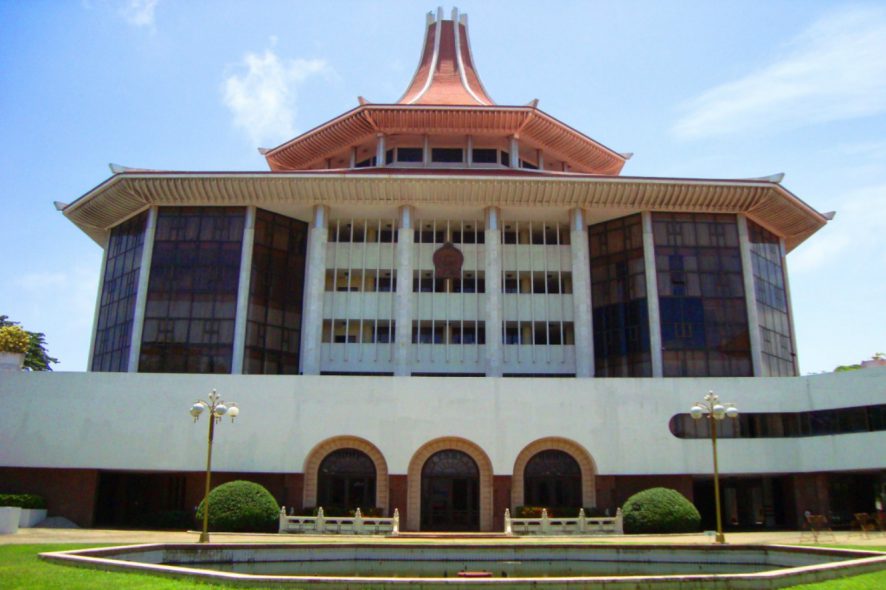Supreme Court of the Democratic Socialist Republic of Sri Lanka: A Full Bench of L.T.B. Dehideniya, Murdu N.B. Fernando and S. Thurairaja, JJ., allowed an application filed by the wife of the deceased, Rathnayake Tharanga Lakmali, on behalf of her husband Ranamukage Ajith Prasanna, pleading that the respondents and the State have infringed the Fundamental Rights of her husband guaranteed to him under Article 11 and 13(1) of the Constitution.
The petitioner submitted that on 16-09-2010, when she was at home with her husband and children, a team of police officers had come to their house, searched the house and had found nothing after which they had arrested the deceased and took him away in a vehicle stating that he was taken in order to record a statement. On the following day, the petitioner went to the police station where she was not allowed to meet the deceased and the next day she was told that the deceased had been taken to her house, when she reached her house she was informed by her mother that the deceased was brought home by the police team and shown to them, and the aunt of the petitioner was also present who stated that the police had not allowed the deceased to speak to them and that she had fed the deceased while he was handcuffed and the deceased had pleaded to the aunt to save him as he had the apprehension of being killed. On 19-9- 2010, the elder brother of the deceased had informed the petitioner that the deceased was shot and taken to the Embilipitiya Hospital. The Post-Mortem Examination (PME) was held on 21st September. The petitioner claimed that her statements were recorded prior to the PME and that she had not been allowed to be present at the time of the PME.
Respondents, on the other hand, claimed that live ammunitions were recovered at the house of the deceased at the time of the arrest further that facts were reported to the Magistrate of Embilipitiya through the Assistant Superintendent of Police (ASP) and a detention order was obtained hence, the deceased was arrested and detained properly.
The aunt of the petitioner had described that the deceased had a pale and swollen face when he was brought home. Upon the conclusion of the inquest proceedings, before the Order was made, the petitioner had made an application before the learned Magistrate requesting that a JMO other than the JMO in Embilipitiya be directed to conduct the Post-Mortem Examination as she could not expect an accurate report from the latter. However, the Magistrate disallowed the application. Further, the Magistrate made an order and found that the deceased’s death was caused by the discharge of a bullet from a firearm and referred the matter to the Attorney-General. Supported from interim relief the Petitioner made an application to direct the learned Magistrate of Embilipitiya to exhume the body of the deceased and to conduct a fresh Post-Mortem Examination by a competent JMO of Colombo or Karapitiya Teaching Hospital, Galle. The Court, after hearing submissions of both parties directed the JMO of the Karapitiya Teaching Hospital, Galle to conduct a second Post-Mortem Report.
The Court while allowing the application stated that the right to life as implicitly recognised in Chapter III of the Constitution is reinforced by International Conventions ratified by Sri Lanka and expressed the view that Articles 11 and 13 have been violated by the respondents; further, the State has failed its responsibility and has violated the Fundamental Rights of the deceased. Accordingly, the Court directed the State to pay Rs 1 million to the petitioner. [Rathnayake Tharanga Lakmali v. Niroshan Abeykoon, 2019 SCC OnLine SL SC 14, decided on 17-12-2019]







